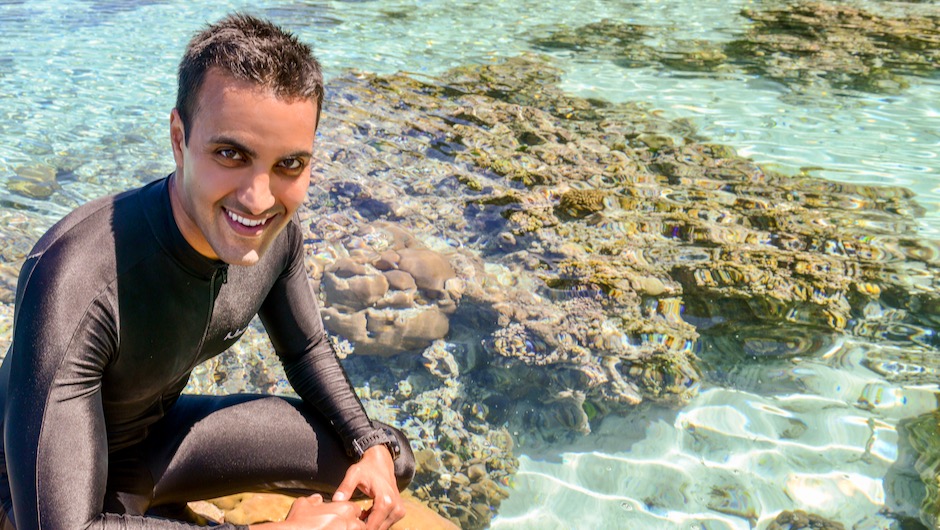Ved Chirayath, Ph.D., an award-winning researcher and inventor of advanced sensing technologies, has joined the University of Miami Rosenstiel School of Marine and Atmospheric Science as director of the newly formed Aircraft Center for Earth Studies (ACES).
“The Aircraft Center for Earth Studies inaugurates the next generation of scientific aerial platforms and observations for Earth science, and opens the door to many vital atmospheric and marine studies,” said Dean Roni Avissar. “Ved’s accomplishments and vision will lead the center to innovate how we deploy technology to gather crucial data for addressing a changing climate and marine and atmospheric processes.”
ACES is a multifaceted initiative that includes a one-of-a- kind flying laboratory, which can operate from land or at sea on a research vessel. It adds many new research capabilities to the school’s Helicopter Observation Platform (HOP), such as field deployments of a sophisticated helicopter coordinated with a fleet of unmanned aerial vehicles (UAVs), controlled through a central command base.
“Our students, scientists and academic, government and industry partners will benefit from ACES’ advanced research capabilities,” said Chirayath, who was also named the inaugural G. Unger Vetlesen Professor of Earth Sciences in the Department of Ocean Sciences. For example, ACES could examine the resilience of coastal areas affected by severe storms and climate change, detect methane leaks near gas fields, observe fluxes in atmospheric turbulence and assess the effects of carbon dioxide on coastal areas around the world.
Chirayath joined the Rosenstiel School after serving as director of the NASA Laboratory for Advanced Sensing at Ames Research Center in Silicon Valley. In that role he invented next-generation sensing technologies for NASA – FluidCam, fluid lensing, MiDAR, and NeMO-Net—that are used to study and protect life on Earth, while aiding in the search for life elsewhere in the universe. These technologies are used in a variety of environments, including mapping coral reefs and shallow marine ecosystems.
Chirayath received the American Geophysical Union’s 2020 Charles S. Falkenberg Award for “stewardship of the planet.” In 2019, his MiDAR invention was awarded a NASA Invention of the Year, for its potential broad applications to advancing the state-of-the-art in aerospace, medicine, geology, oceanography, human spaceflight, and manufacturing.
Chirayath’s other honors include the 2017 NASA Early Career for “significant advances in aquatic remote sensing technology,” and the 2016 NASA Equal Employment Opportunity Medal for organizing the first participation by NASA in the San Francisco LGBT Pride Parade. He is also a professional photographer whose work has been featured in Vogue, the New York Times, Vanity Fair, and Elle.
As a high school sophomore in southern California, Chirayath modified a consumer digital camera and telescope to detect an extra-solar planet 150 light years from Earth. He earned his doctoral degree in aeronautics and astronautics from Stanford University in 2016.
ACES was created through the generous gifts from The Batchelor Foundation, the G. Unger Vetlesen Foundation and an anonymous donor.

